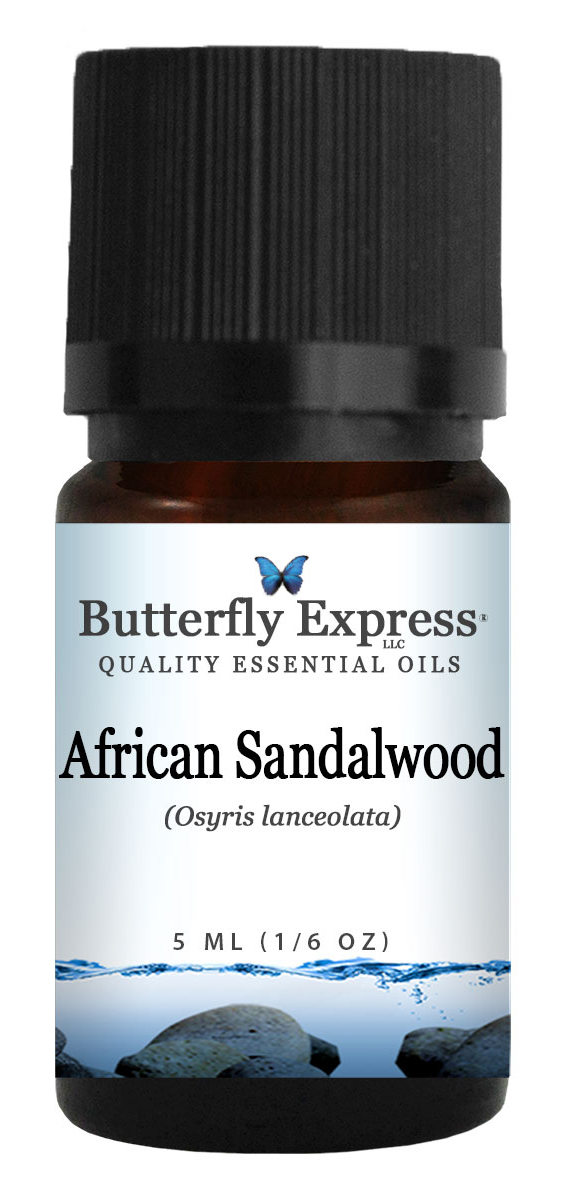African Sandalwood
(Osyris lanceolata)
THERAPEUTIC PROPERTIES: antiseptic, antidepressant, tonic, aphrodisiac, emollient, calming, decongestant, supports cardiovascular system
AFFINITY FOR: pineal, pituitary, skin, lymph, bladder meridian, gallbladder meridian, third eye meridian
RESONANCE: physical, emotional, energetic, spiritual
PLANT FAMILY: Santalaceae
PART UTILIZED: roots, wood
EXTRACTION METHOD: steam distillation
AROMATIC CONSIDERATIONS: African Sandalwood has a woody, smoky fragrance that is heavier than Sandalwood. It is slightly reminiscent of Cedar wood.
APPLICATION: African Sandalwood can be worn on the body anywhere, diffused, used in the bath, and added to body lotions and creams.
EMOTIONAL - SPIRITUAL - MENTAL ASPECTS: African Sandalwood is said to be a soothing, relaxing essential oil. It promotes restful sleep and helps to alleviate anxiety. It is a favorite to use during yoga, meditation, and prayer sessions. African Sandalwood is very grounding and will help you remain centered during times of emotional distraction. It is a great essential oil to reach for during times of loss as it helps us find peace and acceptance. All species of sandalwood has the ability to go into the DNA of the cells and unlock emotional trauma, allowing us to heal faster from emotional wounds of all types.
PHYSICAL ASPECTS: African Sandalwood has a high percentage of sesquiterpenes so it will increase oxygen around the pineal, and pituitary glands and stimulate the amygdala. On the skin, it is believed to be effective for wrinkles, helps prevent scars from forming, and is a great toner. Sandalwood oils should always be a part of any program for a chronic type illness.
GENERAL INFORMATION: African Sandalwood is considered the most economical alternative to the East India Sandalwood, which is being seriously depleted worldwide. It is a tall perennial woody plant that is mostly found in East Africa. Its numbers have been greatly reduced by overexploitation of its roots for essential oil use, and as a slow growing tree it does not rebound quickly. There are two species that share the common name of “African Sandalwood” but have vastly different latin names. Sandalwood oils come from a range of species, and while they all have similar uses, quality and characteristics vary greatly between the oils of different species.
CAUTIONS: African Sandalwood is considered a mild, non-toxic, non-irritant, and non-sensitizing oil.
©Copyright Butterfly Expressions 2020, 2021

